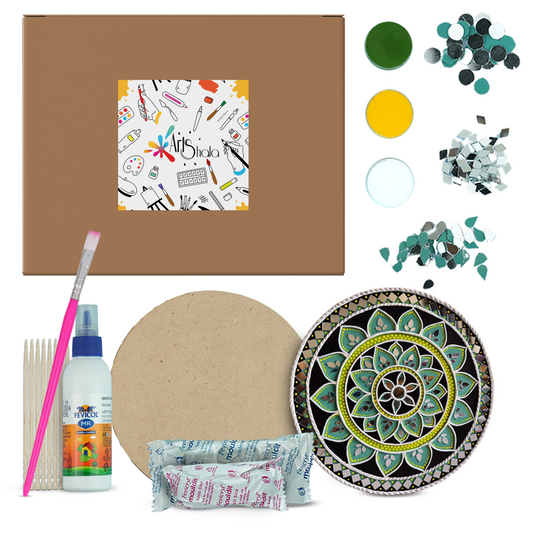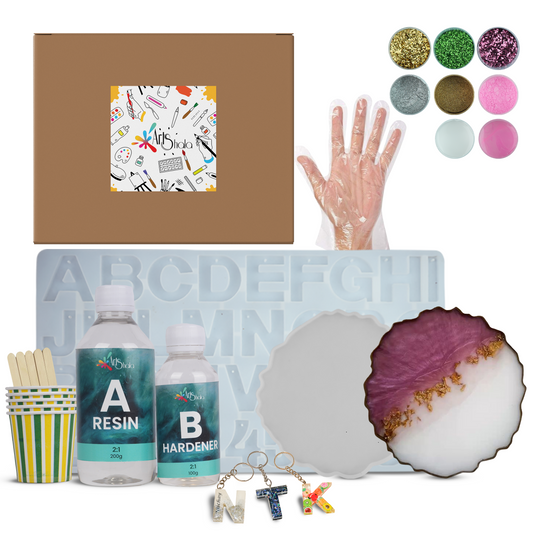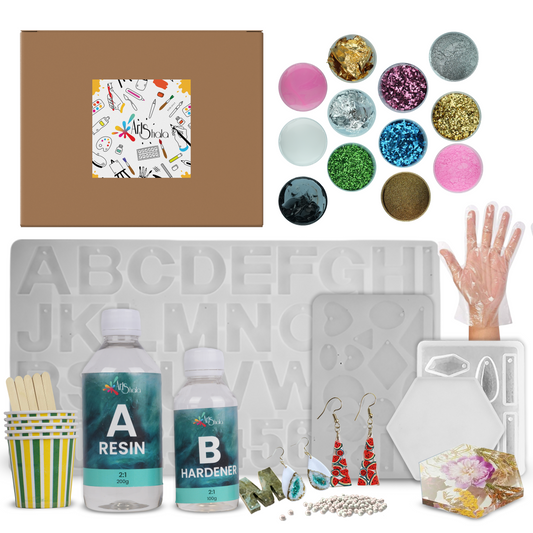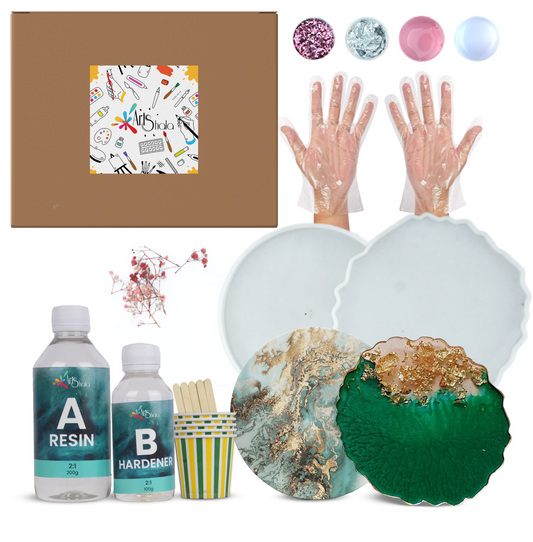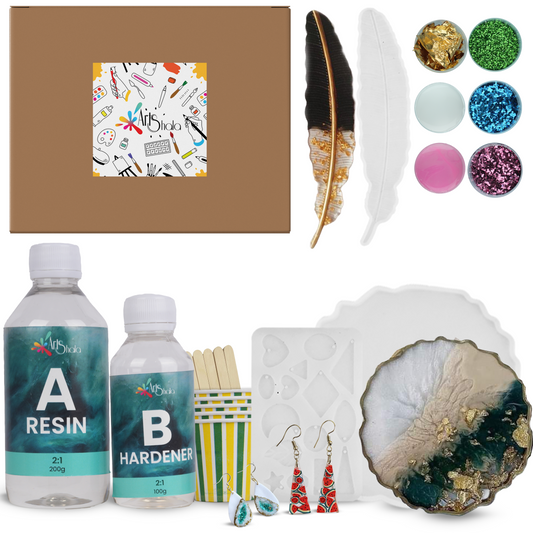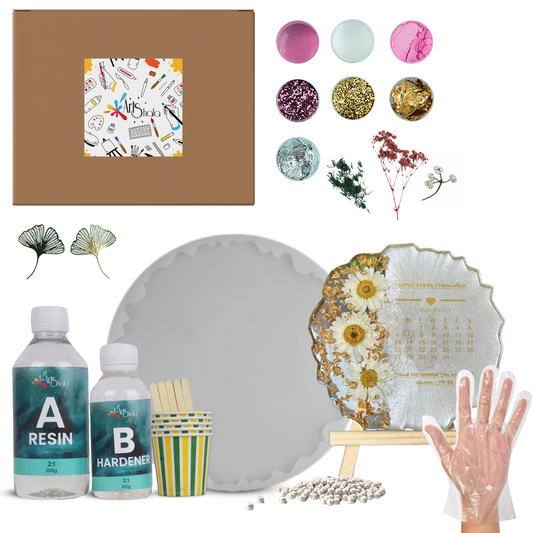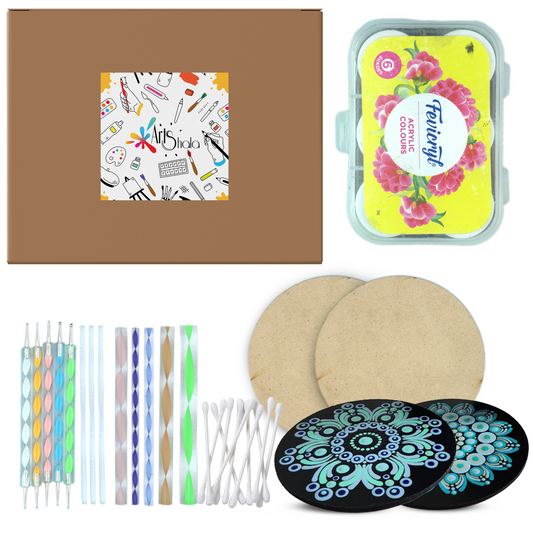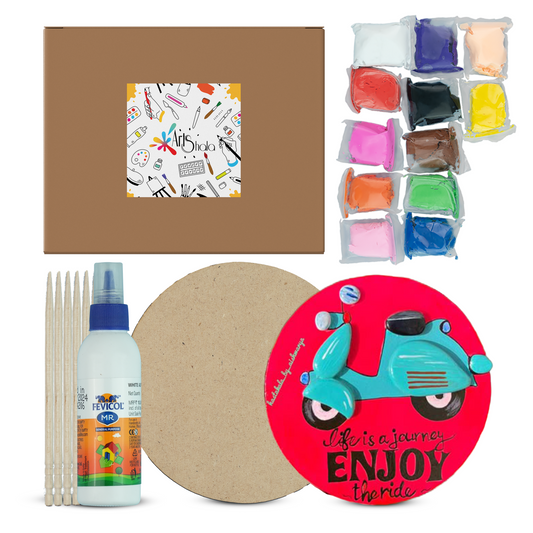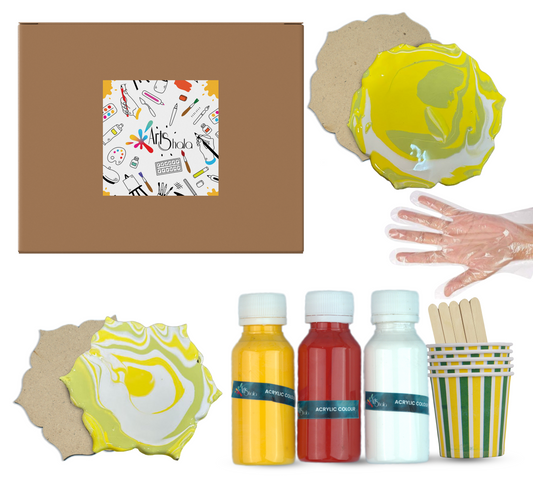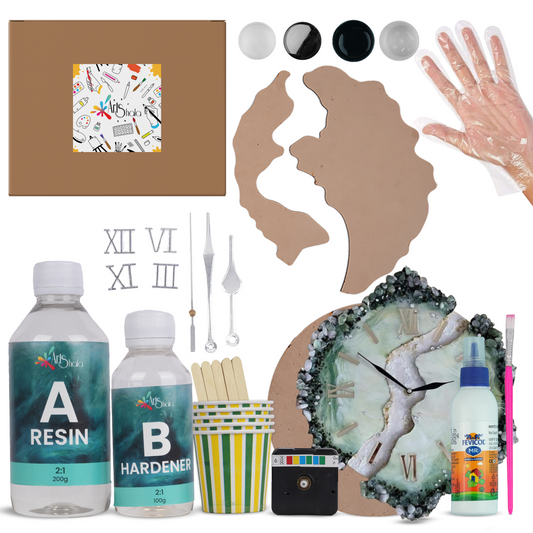What Types of Resin Materials Are Used in Homemade Crafts?
Are you a craft enthusiast looking to explore the world of resin crafts? Resin is a versatile material that can be used to create stunning and unique pieces of art. However, with various types available in the market, it can be overwhelming to choose the right one for your homemade crafts. So, let's dive and explore the different types of resin materials that are commonly used in homemade crafts. To learn more, enrol in a resin art workshop.
Types of Resin Materials Used in Homemade Crafts
When it comes to the world of homemade crafts, resin materials play a significant role in creating stunning and unique pieces. There are various types that artisans and crafters can explore, each with its distinct characteristics and applications.
1. Epoxy Resin
It is a popular choice among crafters due to its versatility and durability. It is a two-part system that consists of a resin and a hardener. When mixed, these components create a chemical reaction, which results in a hard and glossy finish. It is ideal for creating jewellery, keychains, coasters, and artwork. Some of its key features and benefits include:
- High Strength: It provides excellent adhesion and is known for its high strength, making it ideal for creating sturdy and long-lasting crafts.
- Crystal Clear Finish: With glass-like clarity, it enhances the beauty of any craft project, allowing colours and designs to shine through.
- Resistance to Yellowing: Unlike other resin materials, it is relatively resistant to yellowing over time, ensuring that your crafts remain vibrant and clear.
2. Polyester Resin
It is another commonly used material in homemade crafts. It is a liquid plastic resin that hardens when mixed with a catalyst. It is known for its affordability and ease of use. It is often used to make resin jewellery, decorative objects, and small sculptures. However, it is important to note that it is not as durable as epoxy resin and may yellow over time. Here are some of its important aspects:
- Cost-effective: It is often more budget-friendly compared to other resin materials, making it an excellent option for beginners or large-scale projects.
- Fast Curing Time: It cures relatively quickly, allowing you to complete your crafts in a shorter time frame.
- Not as Clear or Durable: Unlike epoxy resin, it may not provide the same level of clarity and durability. However, it can still be used for a wide range of craft projects that don't require these specific features.
3. UV Resin
It is a relatively new type of resin that has gained popularity in recent years. It is a liquid resin that cures under ultraviolet light. Many crafters prefer it for its fast curing time and crystal-clear finish. It is commonly used in jewellery making, as it allows for intricate details and quick results. It is also non-toxic and odourless, making it a great option for beginners. It offers several characteristics that make it ideal for homemade crafts:
- Fast Curing Time: Unlike other resin materials, it cures quickly under ultraviolet light. This means less waiting time and more time for crafting.
- Transparency: It provides a crystal-clear finish, making it perfect for projects where transparency is desired, such as jewellery or ornaments.
- Low Odour: Some resin materials emit strong smells during the curing process. This, on the other hand, has a relatively low scent, making it more pleasant to work with.
- Strong and Durable: Once cured, it forms a strong and durable bond. This ensures your homemade crafts will withstand everyday use.
4. Polyurethane Resin
It is a versatile material that is commonly used in industrial applications as well as in homemade crafts. It is a two-part resin system that creates a hard and durable finish. It is often used for casting purposes, such as creating moulds, replicas, and figurines. It can also be used to create jewellery and decorative objects. Let's explore the key characteristics:
- Impact Resistance: It is highly resistant to impact, making it ideal for creating crafts that require durability and flexibility, such as outdoor garden ornaments or DIY phone cases.
- Weather Resistance: With its excellent resistance to UV rays and extreme weather conditions, it is perfect for crafts that will be exposed to the elements.
- Less Clarity: While it is not as transparent as epoxy resin, it can still provide a clear or translucent finish, depending on the specific formulation.
5. Silicone Resin
Also known as RTV (Room Temperature Vulcanizing) silicone, it is a flexible and heat-resistant material. It is commonly used for creating moulds and casts for various crafts. Silicone resin is preferred for its ability to capture intricate details and its easy-release properties. Crafters often use it to make resin moulds for jewellery making, soap making, and candle making. Here are some key characteristics:
- Flexibility: Unlike other resin materials, it exhibits exceptional flexibility, allowing for effortless demolding of intricate designs. This makes it ideal for creating detailed jewellery pieces or complex moulds.
- Heat Resistance: It is known for its ability to withstand high temperatures, making it suitable for projects that involve heat exposure. You can safely pour hot liquids or use heat-generating tools without compromising the integrity of your resin creations.
- Transparency: It has a naturally transparent appearance, giving your crafts a polished, professional finish. This clarity is especially beneficial when creating jewellery items such as pendants, earrings, or bangles.
- Versatility: It can be easily tinted with various pigments, allowing you to customise your creations with a wide range of colours. From vibrant hues to subtle pastels, the possibilities are endless.
6. Crystal Resin
As the name suggests, it is a high-quality resin that offers a crystal-clear finish. It is often used in jewellery making and resin art. It is self-levelling, which means it spreads evenly and eliminates the need for excessive sanding or polishing. It is also UV-resistant, ensuring that your creations remain clear and vibrant over time. Let's delve into its characteristics:
- Clarity: It boasts exceptional clarity, mimicking the appearance of actual crystals. This clear, glossy finish enhances the overall aesthetic appeal of your crafts, making them visually striking.
- Hardness: It has a high level of hardness, granting your creations increased durability. This strength makes the resin suitable for crafting items such as coasters, keychains, or paperweights that undergo regular use.
- UV Resistance: One of the significant advantages of it is its resistance to UV rays. This property ensures that your crafts retain their clarity and vibrant colours even when exposed to sunlight over time.
- Layering Potential: Due to its self-levelling nature, it is perfect for creating layered or embedded designs. This opens up opportunities for creating stunning resin art, capturing beautiful colours and textures in each layer.
Conclusion
Now that you are familiar with various types of resin materials used in homemade crafts, you can choose the one that best suits your project requirements. Whether you are a beginner or an experienced crafter, resin crafts offer endless possibilities in terms of creativity and design. To understand this concept better, visit Arts Shala’s website and don't hesitate to Contact Us for more information. Now, it's time to get your hands on the right resin material and let your imagination run wild!



